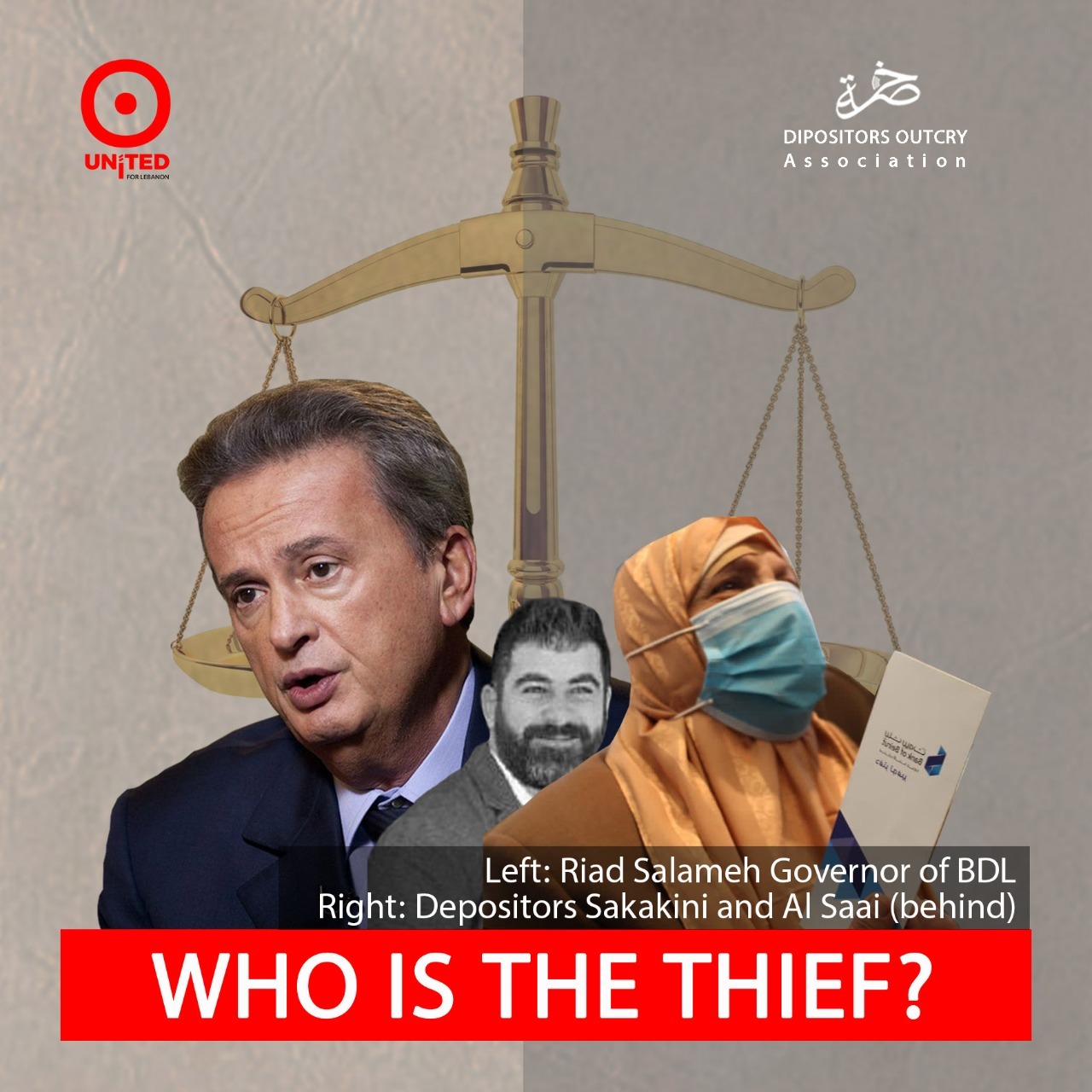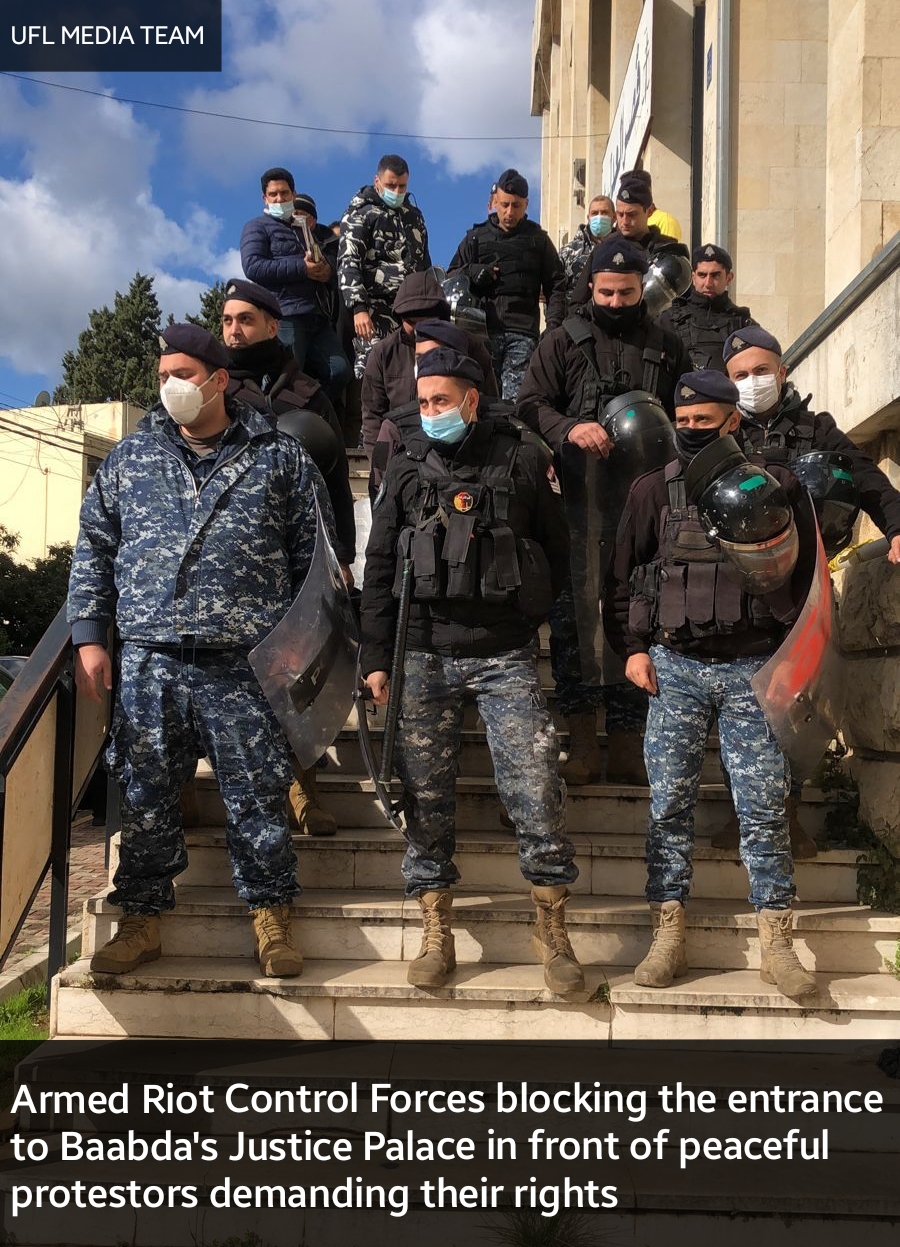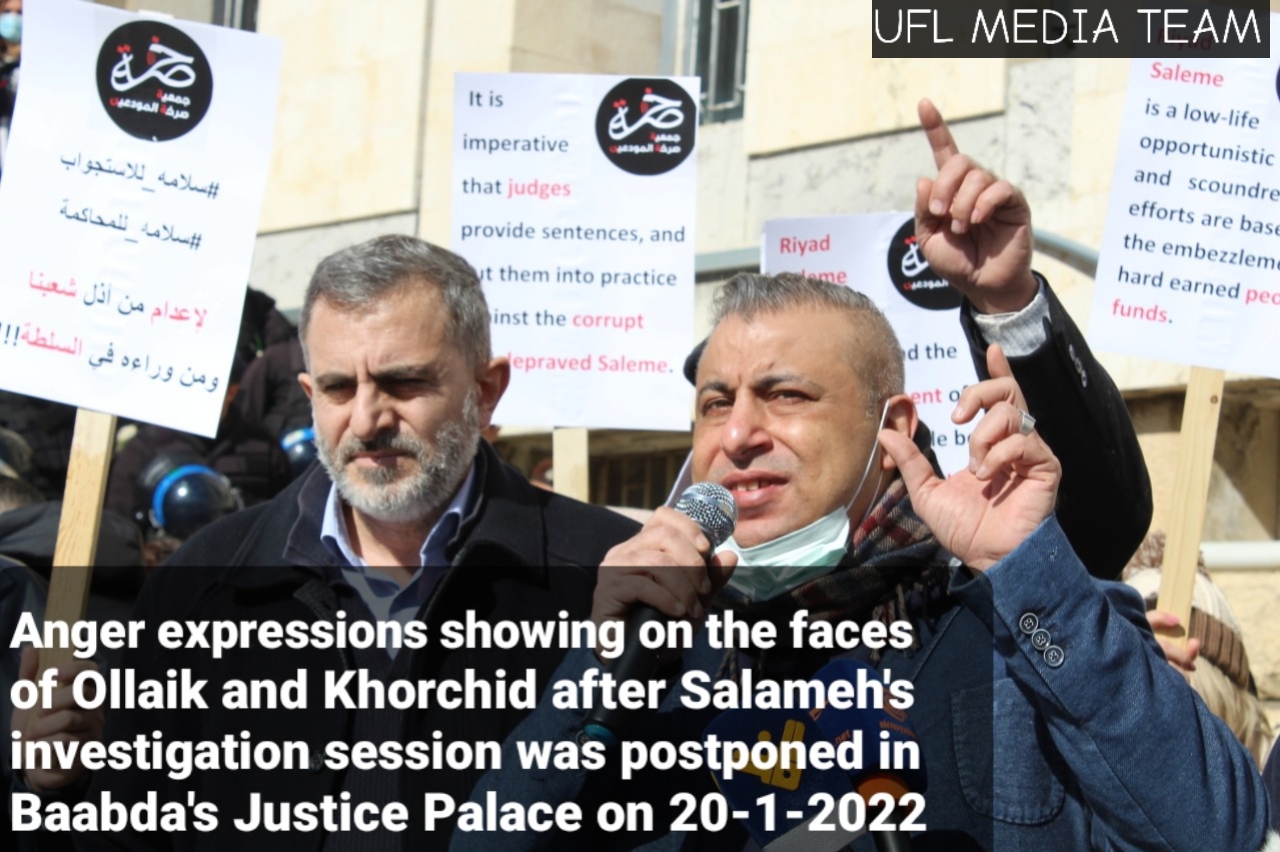
Banking Corruption
Lebanon: Taking the Law into Own Hands and Article 184 of the Penal Code in Effect after Judiciary Paralyzed
It all commenced on Friday January 14, 2022 when members of Depositors Outcry Association (DOA) and their agents of United for Lebanon (UFL) peacefully accompanied the 79-year old depositor Mrs. Souad Sakakini to withdraw her savings from Bank of Beirut in Tariq El Jdideh. But the events then took a rather unfamiliar turn. Sakakini and those in company were violently forced out of the bank by Riot Control Forces. She and two old ladies were among those who were injured and offered immediate medical care by members of the Lebanese Red Cross. Sakakini and her lawyer Rami Ollaik of UFL were armed by Article 184 of the Lebanese Penal Code, and they were adamant on practicing the right to self defense, taking the law into their own hands, after no lawful intervention by Lebanese courts ever took place.
Later on Tuesday, January 18 Mr. Abdullah Al-Saai resorted to the legitimate right of self-defense at BBAC Bank branch in Jubb Jenin of Bekaa Governorate. He in turn had to take the law into his own hands after his desperate cries over the past days were completely ignored. He entered into the branch and demanded to withdraw 50 thousand US dollars from his savings, and then he had to voice out threats of burning the bank had he not been able to recover a fraction of his rightful savings.

While a glimpse of hope for bank depositors finally emerged from a few judges, such as Mariana Anani, Head of Judiciary’s Executive Branch of Beirut, flagrant violations of the law during a scheduled interrogation session of Riad Salameh, Governor of Banque du Liban (BDL) has made the Judiciary hit rock bottom. On January 19, 2022 Anani issued a verdict, which has been described as a precedent, stripping the bank issuing a bankers check from exoneration just upon check issuing and delivery to beneficiary. The verdict considers the bankers check as an executive document that is entitled to be collected in cash directly from the bank, for exoneration of the issuer bank to take effect. Anani’s decision is of marked importance in light of the country’s current financial crisis.
On January 20, while the Investigative Judge of Mount Lebanon Arlette Tabet was supposed to hold a duly scheduled interrogation session for Salameh as defendant, the latter did not attend nor did his legal agent. For reasons recounted as suspicious, Tabet postponed Salameh’s interrogation while refusing to write the session minutes, in addition to other serious violations. While under shock, with Tabet refraining from issuing an arrest warrant for Salameh as a standard procedure in this case, lawyers of UFL and others and members of DOA gathered in front of Baabda’s courthouse to voice out their anger.
Right afterwards, UFL lawyers Rami Ollaik and Cynthia Hamawi met with Head of Judicial Inspection Commission, Judge Burkan Saad, and then with Head of Higher Judicial Council, Judge Suhail Abboud. Both judges were briefed on Tabet’s ‘disastrous’ behavior, and an emergency written complaint against Tabet was filed to the Commission.

At Baabda’s courthouse sit-in, Ollaik denounced Tabet’s decision and behavior amid ongoing death, humiliation and suffering of the people at the doors of banks, hospitals, bakeries, gas stations, and so, given the relevance of said interrogation session to all this. “Every judge in charge is to blame for any escalation that might happen or any blood that might be shed,” he cried out. “When the judiciary acts in such a way, people have no other choice but to fully implement Article 184 of the Penal Code, taking the law into their own hands.”
Alaa Khorchid, President of DOA, added, “Lebanon has become a country in which the law is exclusively enforced on the weak, making it resemble ancient Saxony’s law enforcement differentiating in punishment according to the status of the person.”
On an ending note, Ollaik and Khorchid described the ongoing confrontation between depositors and the Association of Banks, their owners, directors and chairmen as part of a bigger fight against main pillars of corruption in Lebanon: Politicians, bank owners, media gurus, and biased judges. In a country where banks freely steal from its citizens and depositors while the judiciary remains absent, massive deterioration becomes evident. Confrontation between those privileged and the ones suffering will turn to be a common practice, where the Lebanese are sadly left with taking the law into their own hands.
